Stanford Law School’s 2023 End-of-Year Faculty Reading List
Richard Ford, George E. Osborne Professor of Law, recommends Recoding America by Jen Pahlka, The Fraud by Zadie Smith, and Invisible Cities, If on a Winter’s Night a Traveler, and The Complete Cosmicomics by Italo Calvino
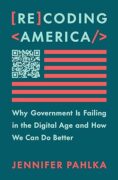
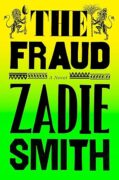
“I’ve only finished half, but Zadie Smith’s The Fraud is terrific reading—an intimate portrait of 19th century England that’s also the story about colonialism, toxic populism, class hierarchy, but most of all, disappointment and longing.
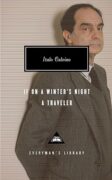
“The death of my mentor and friend, Harvard Law School’s Gerald Frug, left me shattered and led me to revisit a book he introduced me to: the wonderful, Invisible Cities, by the Italian writer Italo Calvino. Excerpts from the book grace the casebook in Local Government Law he created and which I and Michelle Anderson now edit along with 1st Circuit Judge David Barron. Invisible Cities is part poetry, part short story, part fable, part science fiction. Every passage is breathtaking. Calvino is equally unique as a writer: the best I can say is that he at times reminds me of Jorge Luis Borges or Umberto Eco with maybe a dash of Neil Gaiman. But that doesn’t do him justice. Once you race through this short volume, I’d recommend his unconventional novel, If on a Winter’s Night a Traveler or his collection of strange tales, The Complete Cosmicomics.”
Lisa Larrimore Ouellette, Deane F. Johnson Professor of Law, recommends Tom Lake by Ann Patchett and Lucy by the Sea by Elizabeth Strout
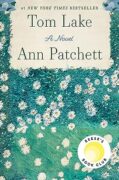
“Two of my favorite recent books are novels set in part during the 2020 COVID-19 lockdown, both of which deftly incorporate the tragedy of the pandemic as the background of compelling stories about interpersonal dynamics and family relationships.
“Tom Lake is the most recent work by one of my favorite authors, Ann Patchett. It involves a mother sharing flashbacks with her three adult daughters about her past life as an actress while they all isolate in Michigan on the family cherry orchard. I highly recommend the audiobook version, which is read by pitch-perfect storyteller Meryl Streep.
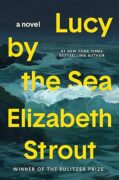
“Elizabeth Strout’s Lucy by the Sea builds on her prior novels about the fictional writer Lucy Barton, but feel free to jump into the series in the middle. (I read Oh William!, about Lucy’s relationship with her ex-husband William after her second husband’s death, but not the earlier ones.) In Lucy by the Sea, William and Lucy move from Manhattan to Maine in early 2020, where they grapple with—among other things—loneliness, grief, aging, and their precarious relationships with each other and with their adult daughters.
“I think both novels are really about the connections that sustain us through isolation and uncertainty. And while I wouldn’t have thought in advance that I would enjoy a “pandemic novel,” I was very sorry when each of them ended.”
Barton H. “Buzz” Thompson, Jr., Robert E. Paradise Professor of Natural Resources Law at Stanford Law School, recommends The Second Murderer by Denise Mina and How the Scots Invented the Modern World by Arthur Herman
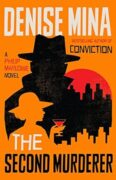
“I have two recommendations this holiday season. The first is a modern Philip Marlowe book, The Second Murderer, by Denise Mina. (The title was Raymond Chandler’s original title for Farewell My Lovely.) It’s not a perfect book, but neither were Raymond Chandler’s novels. Read The Second Murderer for its wonderful portrait of an updated Marlowe, who rather than Chandler’s misogynist version is sensitive to both women and LGBTQ. Read it for the language, which does homage to the great noir fiction of the mid-20th century. Read it for its multiple LA references. And read it for the plot, which doesn’t quite tie together in the end, but is better resolved than the typical Chandler novel. Mina is a wonderful writer (as all of her prior books show), and it’s a sinful pleasure watching her imitate perhaps the most famous mystery writer of all time. My bottom line is that Mina is better than Chandler, and I hope for sequels.
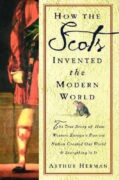
“My second recommendation is How the Scots Invented the Modern World by Arthur Herman. Having finished presidential biographies, I was looking for equally interesting history. So why not the Scottish enlightenment? Herman does a fantastic job of describing the great Scottish philosophers of the 18th century and showing how their work was highly influential in defining the modern world. In the process, Herman also expertly narrates the history of modern Scotland starting with the National Covenant. It’s a wonderful story and a thoroughly enjoyable book.”
Hank Greely, Deane F. and Kate Edelman Johnson Professor of Law, recommends Whole Earth: The Many Lives of Stewart Brand by John Markoff, An Immense World by Ed Yong, The Redshirts by John Scalzi, and On Tyranny by Timothy Snyder
“From my recent reading, I’m going to recommend some biography, some science, some science fiction, and something from a historian that is not history.
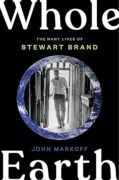
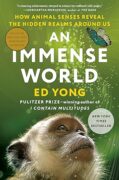
“The science recommendation is an award-winning book by Ed Yong, called An Immense World. It’s a wonderful exploration of how animals (mainly non-human ones) sense the world, including not only our senses, but some that people just don’t have, like magnetic directional sensing or echolocation. Its real virtue, though, lies in helping us understand how different the worlds are that different animals inhabit. And I’ll never look at a dog being taken on a walk the same way.
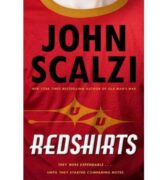
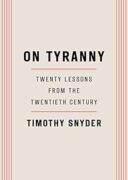
“Finally, the historian recommendation is Yale’s Timothy Snyder. I think I’ve recommended at least one of his histories of Eastern and Central Europe in the past. But this time, I’m commending not a history, but a warning, and a “to do” list, with 20 lessons on how to prevent tyranny taking over the United States. It’s called simply, On Tyranny. It’s short (just over 100 pages) but powerful.”
David Alan Sklansky, Stanley Morrison Professor of Law, recommends Klan War: Ulysses S. Grant and the Battle to Save Reconstruction by Fergus Bordewich
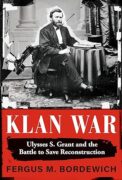
“Klan War: Ulysses S. Grant and the Battle to Save Reconstruction by Fergus Bordewich is a riveting account of the rise of the first Ku Klux Klan, the horrifying campaign of torture and murder it carried out in the 1870s, and the legislative, prosecutorial, and military measures that all but eradicated the group—before Reconstruction was abandoned, and the path was cleared for decades more of white supremacist terror, including by the Klan’s two later iterations. It’s a shocking and ultimately infuriating story, but it’s also a story, in part, of decent and often extraordinarily courageous people, Black and white, who fought against the Klan and for a vision of racial equality that has yet to be realized.”
Pamela Karlan, Kenneth and Harle Montgomery Professor of Public Interest Law, recommends Super-Infinite: The Transformations of John Donne by Katherine Rundell, Punish Treason, Reward Loyalty by Mark A. Graber, and Theft By Finding: Diaries (1977-2002) and A Carnival of Snackery: Diaries (2003-2020), by David Sedaris
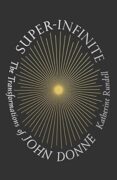
“Katherine Rundell, Super-Infinite: The Transformations of John Donne. A wonderfully quirky biography of the great poet, who was a far more complex man than even his complex poetry suggests. One of my favorite parts was the discussion of Donne’s The Courtier’s Library—a satirical catalogue of fake books “that the striving courtier can introduce into conversation to make himself seem wiser, keener, sexier.” A lesson for us all.

“Mark A. Graber, Punish Treason, Reward Loyalty: The Forgotten Goals of Constitutional Reform after the Civil War. With so many folks now fixated on Section 3 of the Fourteenth Amendment—which disqualifies from office individuals who “engaged in insurrection or rebellion” against the United States—this book is a great introduction to the entire framework of the Reconstruction Amendments. Far too often, we skip straight from Section 1 of the Fourteenth Amendment, and the citizenship, due process, and equal protection clauses, to Section 5 and congressional enforcement powers, without ever asking how they’re related to the forgotten parts of the amendment. Professor Graber makes a powerful argument about how the pieces fit together.
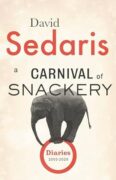
“David Sedaris, Theft By Finding: Diaries (1977-2002) and A Carnival of Snackery: Diaries (2003-2020). Screamingly funny books to pick up when you have 5-10 minutes and want to read something that will always make you laugh and often make you think. Also, perfect airplane reading because so many of the entries involve Sedaris’s trips around the globe to speak.”
Lawrence Friedman, Marion Rice Kirkwood Professor of Law, Emeritus, recommends France on Trial by Julian Jackson, Ghostland by Colin Dickey, and favorites by Anthony Trollope
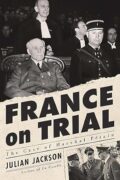
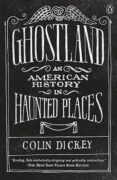
A. Mitchell Polinsky, Josephine Scott Crocker Professor of Law and Economics, recommends Horse: A Novel by Geraldine Brooks
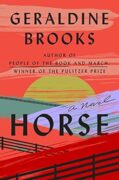
“My wife’s book group chose this as their next book, and she asked if we could listen to it on a long driving trip recently. This is a book about horses and art and race relations. I’m not especially interested in the first two topics, but said yes anyway. Wow, am I glad I did. This is a thrilling and deeply interesting novel based on a true story about the greatest racehorse of the 19th century. The following snippets from some reviews capture my reaction to the book: “Brooks’ chronological and cross-disciplinary leaps are thrilling” (New York Times Book Review); “[A] sweeping tale . . . fluid, masterful storytelling . . .” (Washington Post); “thrilling new novel” (Wall Street Journal); “[A] deft novel. . .” (The New Yorker); “a moving narrative about race and art” (TIME). And I’ll add: “A great listen on Audible.com” (Mitch Polinsky).”
David Mills, Professor of the Practice of Law, recommends Determined by Robert Sapolsky
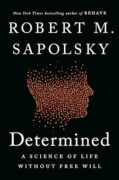
“If you ever thought free will existed, you won’t.”
William B. Gould IV, Charles A. Beardsley Professor of Law, Emeritus, recommends The Wounded World: W.E.B. Du Bois and the First World War by Chad Williams, American Inheritance by Edward J. Larson, When Affirmative Action Was White by Ira Katznelson, and Winnie and Nelson: Portrait of a Marriage by Jonny Steinberg
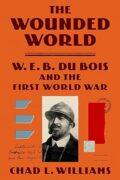
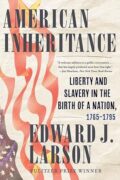
“Three that I’ve just finished: American Inheritance: Liberty and Slavery in the Birth of a National 1765-1795 by Edward J. Larson, reminded me anew of the teachings given to me as a child from my parents about the deep involvement of so many our Founding Fathers in slavery. A second, When Affirmative Action Was White by Ira Katznelson, recommended to me by James Campbell of our history department, highlights the exclusion or subordination of Blacks from our safety net (and supplements nicely Rothstein’s The Color of Law which I read a year or so ago). A third, Winnie and Nelson: Portrait of a Marriage by Jonny Steinberg, brought back memories of my meeting with Winnie in 1977 in the Orange Free State and the two which I had with Nelson in 1991 and 1992. It told me much about Winnie that I’ve long surmised.

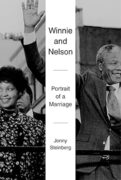
“I’m now reading Where Have all the Democrats Gone by Judis and Teixeira as I gird my self for 2024 and am this day dipping into David Leonhardt’s Ours Was the Shining Future for the same reason (he is a very favorite writer of mine). In light of current events, I’m about to embark upon The Hundred Years’ War on Palestine: A History of Settler Colonialism and Resistance, 1917-2017 by an activist academic, Rashid Khalidi who has impressed me enormously.”
Michelle Wilde Anderson, Larry Kramer Professor of Law, recommends The Copenhagen Trilogy by Tove Ditlevsen and Heavy: An American Memoir by Kiese Layton
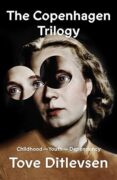
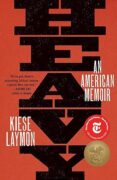
Robert Rabin, A. Calder Mackay Professor of Law, recommends The Cause and Founding Brothers, both by Joseph J. Ellis
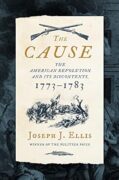
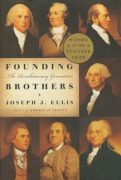
Jennifer Chacón, Bruce Tyson Mitchell Professor of Law, recommends Migrations by Charlotte McConaghy and Bad Mexicans: Race, Empire, and Revolution in the Borderlands by Kelly Lytle Hernández
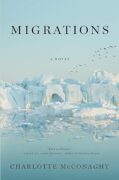
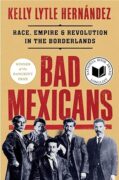
Michele Landis Dauber, Frederick I. Richman Professor of Law, recommends Number Go Up by Zeke Faux

Fueled by the absurd details and authoritative reporting that earned Zeke Faux the accolade “our great poet of crime” (Money Stuff columnist Matt Levine), Number Go Up is the essential chronicle, by turns harrowing and uproarious, of a $3 trillion financial delusion.
